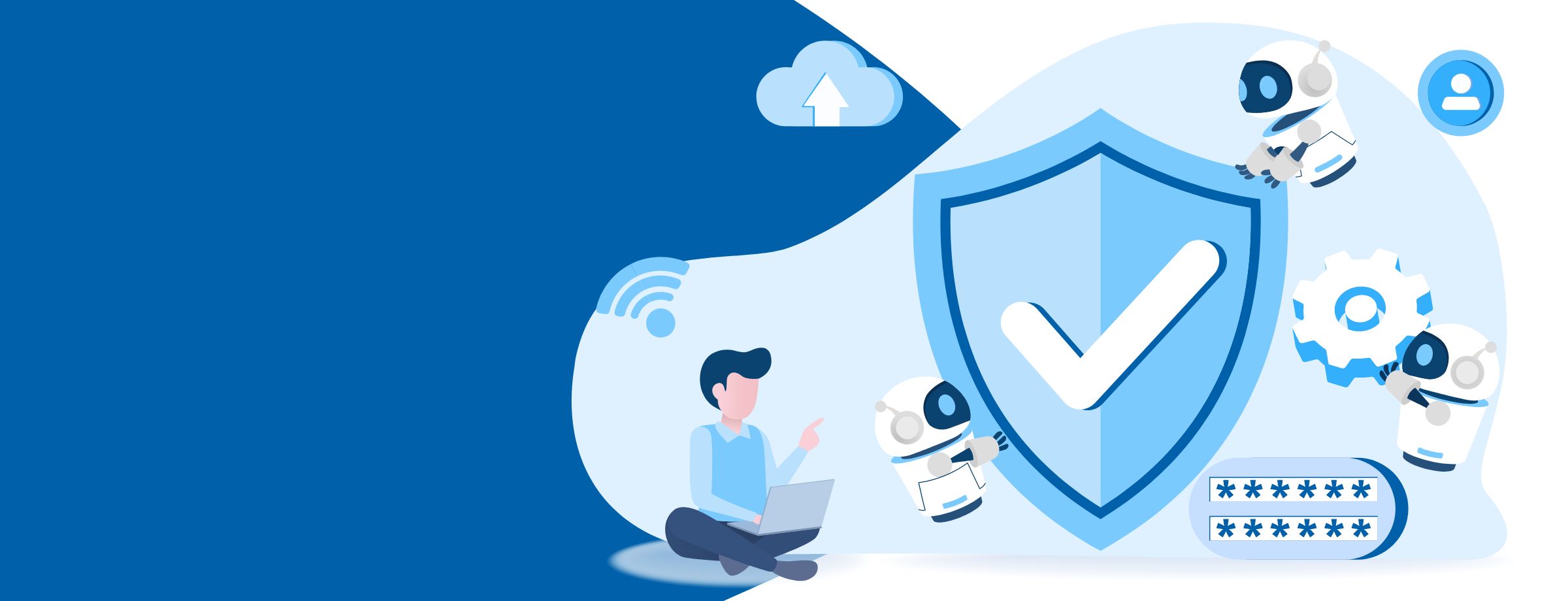If you’re a managed service provider (MSP) looking to offer Microsoft cloud services, you’ll need some way to get your foot in the door with your clients. They’ll want to know you can provide reliable service and support, which can be hard to prove without any performance history to point to.
Read our Partner Guide to explore how Sherweb can help your business grow
So what’s the solution? One of the best options is to get foundation-level certifications, such as Microsoft 365 Fundamentals. This certification shows your understanding and management capabilities for the core services in Microsoft 365 and the Software as a Service (SaaS) business model.
So why is selling Microsoft 365 good for you as an MSP? Why is it good for your customers, for that matter? And what do you need to know about the Microsoft 365 Fundamentals certification before you take the exam? We’ll cover the answers below.
The benefits of selling Microsoft 365 cloud services
Before you put any effort into attaining the Microsoft 365 Fundamentals certification, you should determine whether it’s a worthwhile addition to your service portfolio. We believe in almost every case the answer is “yes.” Offering Microsoft 365 cloud services enables you to realize many benefits for your cloud business including but not limited to diversifying your customer base, creating additional revenue streams and creating upsell opportunities for existing customers.
Diversify your customer base
Adding Microsoft 365 to your offering can open up a whole new customer base for your MSP business. You may already have a reliable rolodex of customers with on-premise infrastructure or smaller scale cloud services, like Google Workspace. But many other businesses are tied to the Microsoft ecosystem.
Upsell existing customers
Existing customers with on-premise infrastructure may not be ready to make the leap to a 100% cloud-only environment, but Microsoft 365 presents many ways to move them over bit by bit. Are they looking to retire an aging email server this year? Offer to upgrade them to Exchange. Are they complaining about their Office licensing? Offer Microsoft 365.
Guaranteed revenue stream
Switching to a service delivery model allows you to establish monthly recurring revenue (MRR) streams. As a result, you won’t worry about jumping from project to project, or the intermittent service needs of on-premise-only customers. Instead, your customers can distribute their IT costs evenly over the fiscal year, and you’ll have guaranteed income the entire time.
Why get certified in Microsoft 365 Fundamentals?
Obtaining a Microsoft 365 Fundamentals certification will demonstrate to your customers that you can effectively deliver Microsoft cloud services. They’ll trust you to help them navigate the various benefits and considerations they can expect to see in deploying those services in their business. You’ll also be able to competently discuss the broader considerations that come with switching to a SaaS model for their IT needs.
MS-900: What you need to know about the Microsoft 365 Fundamentals exam
You’ll need to pass the MS-900 exam to obtain your Fundamentals certification. This exam will test you on a wide range of topics, including cloud computing concepts, Microsoft 365 cloud services knowledge and how Microsoft support works. Microsoft frequently updates this exam, so make sure you study for the most recent version!
How to describe cloud computing concepts
You’ll need to describe the different cloud services models, including fundamental concepts like public, private and hybrid cloud deployments. You’ll also need to describe Microsoft’s cloud ecosystem, including their productivity software, Dynamics 365 and other apps (SaaS) as well as infrastructure (IaaS) and platform (PaaS) offerings.
You’ll also need to describe the benefits and considerations we discussed above for moving from on-premise to cloud services. You’ll need to demonstrate competency in comparing the relative cost structures of each and explain the motivating factors that lead businesses to consider moving from on-premise to a cloud computing environment.
Microsoft 365 cloud services and core business concepts
MS-900 will also test your ability to explain Microsoft 365 core capabilities, including those of its productivity and collaboration tools, most notably the Office apps, SharePoint, and Teams. You’ll also need to explain business management concepts like process automation, integrating voice communication resources—now commonly referred to as Unified Communication as a Service (UCaaS)—and core security and compliance concepts.
You also need to understand and explain how Microsoft cloud infrastructure works. For example, you’ll need to describe the capabilities of Azure Virtual Desktop (AVD) environments, as well as explain when it might make sense to implement one.
One last but important topic in this area is Microsoft 365 analytics. You will need to describe the overall analytics capabilities on the platform, including Workplace Analytics and the MyAnalytics personal metrics tools, in particular.
Explain the extended security capabilities in Microsoft 365
Microsoft 365 security is a broad topic. Microsoft has made its name in cloud services for its deep feature set of business-friendly security and compliance capabilities. At a high level, you will need to show your knowledge of the critical resources that you must protect in a cloud environment, including:
- Identities
- Devices
- Applications
- Networks
You will also need to explain other critical areas of business cloud security. For example, you will need to describe the zero-trust security model and how it applies in Microsoft 365. The exam also asks you to explain the principles of mobile device management, how those devices interact with cloud environments, and how to implement an effective Bring Your Own Device (BYOD) program.
How Microsoft 365 pricing and support work
The last major topic on which the exam will ask you to demonstrate competency is in Microsoft’s pricing and support model. You will need to describe the licensing and management options for Microsoft 365 and how to create a support request for those services. In addition, you will need to demonstrate your general understanding of service level agreements (SLAs), how SLAs can be tiered and the different roles and responsibilities they outline.
Studying for Your Microsoft 365 Fundamentals certification
As you can tell, the MS-900 covers a lot of ground! Fortunately, there are some excellent training resources out there that you can use.
Microsoft resources
As you might expect, Microsoft offers some excellent training resources of their own, including:
- An overview of the Microsoft 365 Fundamentals certification and details on how it fits into different Microsoft MSP learning pathways
- A free series of learning modules that dive deep into the critical MS-900 exam topics discussed above
Official third-party resources
Microsoft makes their official practice exam for MS-900 available through a third party. You may want more structured training before attempting this exam, though.
Sherweb Partner University
Sherweb’s Partner University offers a wide range of training options, including a dedicated skill path for the Microsoft 365 Fundamentals exam. A video-based library that also includes skill paths on topics such as business development, sales, marketing, operations and additional products to Microsoft 365, Partner University was designed to help MSPs strengthen their cloud business.
Want help preparing for you Microsoft 365 Fundamentals certification?
Sherweb’s Partner University helps you sharpen your skills and grow your business, but it’s also just one of the many perks of Sherweb’s partner program. Check out our Partner Guide to learn more or sign up to leverage the benefits now.





